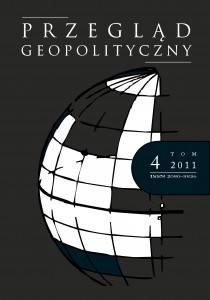GEOPOLITYCZNE POŁOŻENIE KAUKAZU POŁUDNIOWEGO PO I WOJNIE ŚWIATOWEJ
GEOPOLITICAL IMPORTANCE OF THE SOUTH CAUCASUS AFTER WORLD WAR I
Author(s): Paweł OlszewskiSubject(s): History, Geography, Regional studies, Regional Geography, International relations/trade, Interwar Period (1920 - 1939), Geopolitics
Published by: Polskie Towarzystwo Geopolityczne
Keywords: South Caucasus; 1918-1921; Volunteer Army;
Summary/Abstract: The main subject of the article is to present role in international relations of three independent republics of South Caucasus: Georgia, Armenia and Azerbaijan, existing in 1918-1921. Due to geostrategic importance of the South Caucasus aroused great interest of superpowers: the United Kingdom, France, Italy and the United States. A special role in this region play Great Britain, whose troops were stationed in the republics of South Caucasus in 1919. Initially, the governments of the victorious powers did not recognize the independence of the South Caucasus states, because they considered this area as a part of Russia. This was due to support by Western governments Volunteer Army, operating in the North Caucasus and fought against Bolsheviks. The command of this formation did not recognize the indepedence of the South Caucasus countries. Southern-Caucasus policy of the victorious powers was changed at the turn of 1919 and 1920, the Volunteer Army began to suffer defeats in battles with troops of Soviet Russia. The growing threat of dependence on Russia's South Caucasus republics led Bolshevik, that the victorious powers in January 1920, recognized governments of Georgia, Armenia and Azerbaijan, and gave them military aid. However, Soviet Russia's military superiority meant that the actions of Western countries did not have much practical significance, and finally to March 1921, the entire Southern Caucasus was sovietized.
Journal: Przegląd Geopolityczny
- Issue Year: 2011
- Issue No: 04
- Page Range: 75-93
- Page Count: 19
- Language: Polish

